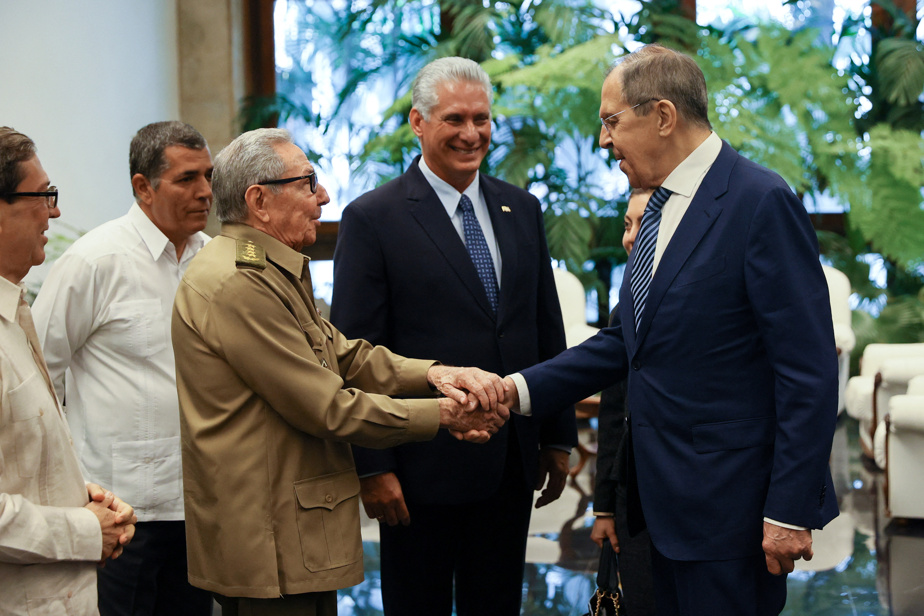(Havana) Russian Foreign Minister Sergei Lavrov on Thursday in Havana thanked the Cuban government for its “full understanding” of the conflict in Ukraine, at the start of a visit to the island that concludes his tour of America Latin.
“We appreciate the fact that, from the very start of the special military operation, our Cuban friends … clearly expressed their position and their full understanding in their assessment of the reasons that led to the current situation,” Mr. Lavrov during a meeting with his Cuban counterpart, Bruno Rodriguez, according to the Russian Foreign Ministry’s Telegram account.
Wednesday evening during the arrival of the head of Russian diplomacy in Havana, the American embassy, located on the seafront, was illuminated with the colors of the Ukrainian flag.
Lavrov, who also met with President Miguel Diaz-Canel and his predecessor Raul Castro on Thursday, condemned the “illegal and illegitimate” US embargo against Cuba, and said his country had also “been subject to US sanctions […] long before current events”.
Cuba has been subject to an economic embargo from Washington for more than 60 years, tightened by Donald Trump when he came to power in 2017, without his successor Joe Biden reversing these sanctions. Moscow has been under sanctions from the United States, Canada and the European Union since its invasion of Ukraine on February 24, 2022.
Mr. Lavrov then noted at a press conference that since Miguel Diaz-Canel’s visit to Russia in November, “there has been a lot of progress, especially in the supply of fuel and food” to Cuba. .
The Cuban leader, the only candidate re-elected on Thursday for a second and final five-year term, is facing the worst economic crisis in three decades, with severe shortages of food, medicine and fuel. He went to seek support during an international tour that also took him to Algeria, Turkey and China.
Upon his return, he said he had signed several oil supply agreements with Russia and Algeria, but fuel shortages continue on the island.
Diaz-Canel believes his crude suppliers face “a complex energy situation” and have failed to meet their commitments.
Mr. Lavrov assured him that “decisions are being implemented that reliably secure the projects of both countries […] from illegal Western sanctions.”
Mr. Lavrov concludes on the Caribbean island a tour which began Monday in Brazil and then led him to Venezuela and then to Nicaragua during which he notably pleaded for a “union” in order to counter “blackmail and illegal unilateral pressure of the West”.

